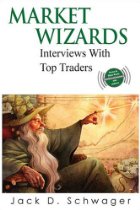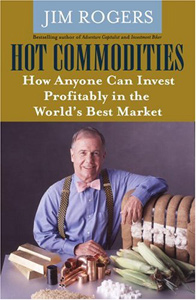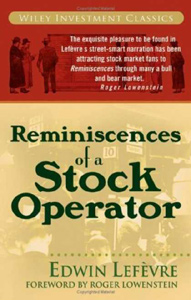Glossary of Stock Trading and Investment Terminology
Base Metals refer to some of the common non-ferrous industrial metals that easily corrode or oxidise. Although they are not as expensive as the precious metals like gold, platinum or silver, base metals are considered as some of the most important items of today’s commodity market. Lot of people are getting more and more interested about trading base metals these days since this particular sector offers a lot of potentials for those who are willing to make profit from the price discrepancy of the commodities.
Placing "stop loss" in case of trading CFDs is a very common practice followed by most of the professional traders. Stop Loss is a type of order that a trader places with his/her broker under which instructions are given to sell a security when it hits a certain price. Stop loss is an option that traders use to minimize their loss on a security position.
Say for example, Mr. X has bought share CFDs on ABC Ltd. at the rate of $50 and placed stop loss at $45. Now this means that Mr. X will be tossed out of the trade automatically in case ABC goes down to $45.
In case of Direct Market Access (DMA), both the CFD prices and liquidity remains equal to the underlying market. This is why traders or investors can enter positions at the identical market price when it comes to direct market access. Investors who follow this particular model are termed as the DMA CFD traders.
The concept of “if done order” involves the combination of two orders that can be placed together in case a trader is unable to monitor the market at a regular basis but is willing to react along with the market movements to get the best out of investments and to avoid loss.
A term deposit is an account held in a financial institution that has a fixed term, generally with maturities ranging from a month to a few years. This means that your funds are tied up. In the event that you need to pull out your money, the banking institution will charge you a fee for breaking the term of your deposit.
The London Metal Exchange (in short LME) is known as the premier non-ferrous metals market of the world which offers options and future contracts for various types of metals including aluminium, copper, lead, tin and zinc. In addition to this, it offers two regional aluminium alloy contracts as well. The exchange has started trading plastic during 2005. It is to be mentioned that, iron and steel are not traded at LME since it is a non-ferrous exchange.
Investing at London Metal Exchange: Different Trading Methods
Contingent order (also called a net order) is the placement of two share orders: one order cannot be initiated without the other. For example, customer A places a buy order and a sell limit order in the market. The buy cannot proceed unless the sell limit order is also started.
Funds that try to make profit by investing on under priced stocks are known as value funds. A value fund looks for cheap stocks that it considers being under valued by the market and invests on such shares with expectations of making profit in future when these shares will rebound with increased demand.
Value Funds: Determining Stocks to Invest
The rate of return from the dividend payments after taking the benefits of imputation credits (also known as franking credits) to the investors in account is measured through grossing up the dividend.
In the past, dividend yields were quoted by dividing the dividend of the full year in cents per share by the market price in cents per share. This way, the result could be compared very easily and accurately with the yields generated by the other type/form of investments.
Soft commodities are usually those commodities that are grown instead of being mined. Commodities like coffee, corn, cocoa, cotton, orange juice, soybean, sugar and wheat are considered as soft commodity.
The basic difference between the soft and hard commodities is that, like it was mentioned at the very beginning, soft commodities are grown while on the other hand the “hard” commodities like metals and chemicals are usually mined.
Soft Commodities and the Futures Market
- How to Trade Forex and Gold Options
- How to Trade the Gold Price and Profit!
- Forex Trading the EUR/USD Pair € EURO and $ US Dollar
- How to Trade Stock Market Indices S&P500
- How to Trade Crude Oil
- Forex Trading Psychology
- What Are Broker Recommendations?
- Free Tickets to Trading & Investing Seminar & Expo ($18) Brisbane 2013
- Stock Calc App
- All About Warrants
- Introduction to Exchange Traded Funds
- Introduction to Exchange Traded Funds: Features
- Introduction to Exchange Traded Funds: Domestic ETFs
- Introduction to Exchange Traded Funds: International ETFs
- Exchange Traded Commodities
- Australian Stock Scan
- Australian Online Share Trading
- List of Trading Books
- Interesting Thoughts about the Australian Dollar
- What's the Meaning of Hawkish?
- Do You Know How To Use the P/E Ratio
- Trading, Religion and Politics - Do They Have Anything in Common?
- Shares that are Volatile that Double and Half in the Short Term
- Telstra (TLS) T3
- Margin Call by E-mail
- The Cost of Holding a Position
- Lack of Disclosure: Compensation from ASX Listed Company
- Unrealistic Returns and Benchmarks
- CMC Markets Down
- Quality versus Quantity Forex Trading
- Woolworths 1H Sales $30.7bn up 3.2%
Date added 31-01-2013 - ASIC Fines CommBank's CommSec
Date added 25-09-2012 - Industry Super Network Calls to Ban High Frequency Trading (HFT)
Date added 22-09-2012 - NAB Launches Online Share Trading Platform
Date added 19-09-2012 - Reserve Bank of Australia Says 23 Countries Holding AUD
Date added 18-09-2012 - Australia Post Digital Mailbox
Date added 10-09-2012 - Winners and Losers of Trading for Week 2
Date added 16-01-2012 - 2012's First Week of the Best and Worst Traded Stocks
Date added 09-01-2012 - 2011's Last Best and Worst Traded Stocks
Date added 05-01-2012 - Best and Worst Pre-Christmas Traded Stocks
Date added 30-12-2011 - Trading Winners and Losers for Dec. 12-16
Date added 19-12-2011 - Best and Worst Traded Stocks for Dec. 5-9
Date added 13-12-2011 - Top 3 Best and Worst Traded Stocks
Date added 05-12-2011 - ASX Glitch Trading Halt
Date added 27-10-2011 - Worst Trade Stocks (and the Best)
Date added 06-08-2011
Top 150 Public Companies Listed on the Australian Stockmarket as at 29/05/2009
- BHP Billiton
- Westpac Banking Corporation (WBC)
- Commonwealth Bank of Australia (CBA)
- National Australia Bank (NAB)
- Telstra (TLS)
- ANZ
- News Corporation (NWS)
- Woolworths Limited(WOW)
- Woodside Petroleum Limited (WPL)
- Rio Tinto
- Westfield Group (WDC)
- Westfarmers Limited (WES)
- QBE Insurance
- CSL
- Newcrest Mining Limited (NCM)
- Origin Energy Limited (ORG)
- Santos Limited (STO)
- AMP Limited (AMP)
- Macquarie Group (MQG)
- Foster’s Group Limited (FGL)



